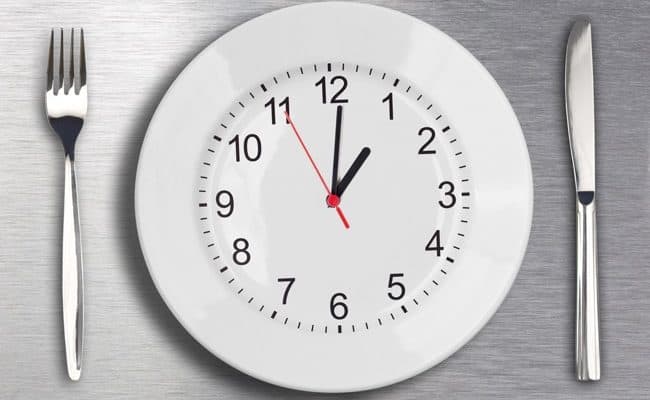
Most people know the health benefits of exercise are numerous, but still about 80% of American adults don’t reach the recommended amount of aerobic and strength exercise guidelines according to the CDC. There can be many excuses for not exercising: no time, too stressed, no interest, etc.
Another reason people may not exercise as much as is recommended may be because they don’t want to feel hungry all the time if they are cutting calories for weight loss.
Cutting calories really low and increasing your exercise can lead you to feel depleted and hungry.
However, exercising for weight loss doesn’t have to mean you feel hungry all the time. Adding in high intensity intervals, eliminating empty carbohydrates, eating when you’re hungry and enjoying your exercise can all influence your hunger and satiety levels.
Add in high intensity intervals
Any type of exercise can be helpful for overall health and can help with weight loss. However, adding in higher intensity exercise intervals could have an additional benefit of suppressing appetite.
A 2014 study (1) put overweight men into a control rest group, a moderate exercise group (ME), high intensity interval group (HI) and a very high intensity exercise group (VHI).
The ME group had 30 minutes of continuous exercise and HI and VHI groups did short intervals of exercise followed by rest periods. After exercise, all groups were able to eat as much food as they wanted.
Researchers found the HI and VHI participants ate significantly lower food compared with the no exercise group, and the VHI group ate significantly less food than the ME group.
The VHI group also had lower food intake up to 38 hours after exercise.
One reason why adding HI intervals to workouts may lower food intake is because high intensity exercise lowers the hormone levels of ghrelin.
Ghrelin is one of the hormones that signal hunger, so suppressing it can help lower food intake.
Cut out empty carbohydrates
Refined carbohydrates can increase blood glucose and soon cause a drop in blood glucose.
When this happens, it signals the brain it is time to eat again. Cutting out empty calories like sweet beverages, packaged snacks and sweets and eating balanced meals and snacks with fiber, healthy fats and protein can help keep blood sugar levels balanced.
This can naturally help maintain blood sugar levels which could mean lowering hunger signals sent to the brain.
If you take it a step further and eat a low carbohydrate diet (less than 35% of calories), this can also further lower hunger signals compared to a higher carbohydrate diet (2).
However, following a low carbohydrate diet should be used with caution when exercising.
Speak with your medical team before trying a low carbohydrate diet.
Enjoying your exercise could mean less food after exercise
Do you exercise because you find enjoyment in it or is exercise something you feel like you just have to do for weight loss?
It turns out the answer to this question could influence what you eat afterwards.
Research by Dr. Wansink from Cornell University (3) found that when people engaged in exercise that was perceived as fun, they ate less food afterwards.
When people engaged in exercise just to exercise, they were more likely to eat more food after exercise.
In fact, people who were exercising just to exercise ate about 35% more after exercise than the group that had more enjoyment from exercise.
How can this be applied to you?
If you find enjoyment in the exercise you do, you probably won’t feel the need to “reward” yourself after exercise with food.
Find something you like to do whether it’s walking outside, dancing, lifting weights, etc.
Adding in variety may also add enjoyment to your exercise so you don’t get mentally bored with your routine.
Practice mindful eating
Mindful eating can be helpful at any stage in life but can be especially helpful during weight loss. There are many hormones that affect hunger and satiety, and researchers are still trying to fully understand how exercise can impact hunger and food intake.
However, practicing mindful eating can help you recognize when you are truly hungry or when you feel like eating because of emotions or because others around you are.
Get back in tune with your body by recognizing when your body is truly hungry. Eat when you’re hungry, not when your brain is telling you to eat.
Stop eating when you are full, not when you’re stuffed. Don’t feel guilty about eating when you are truly hungry and feel good about stopping when you are full.
Sometimes hormones that regulate appetite can get out of whack which can skew hunger levels. In this case, extra medical help may be needed.
However, if your food intake is driven by external cues, shifting to eating from your body’s hunger cues can be helpful.










